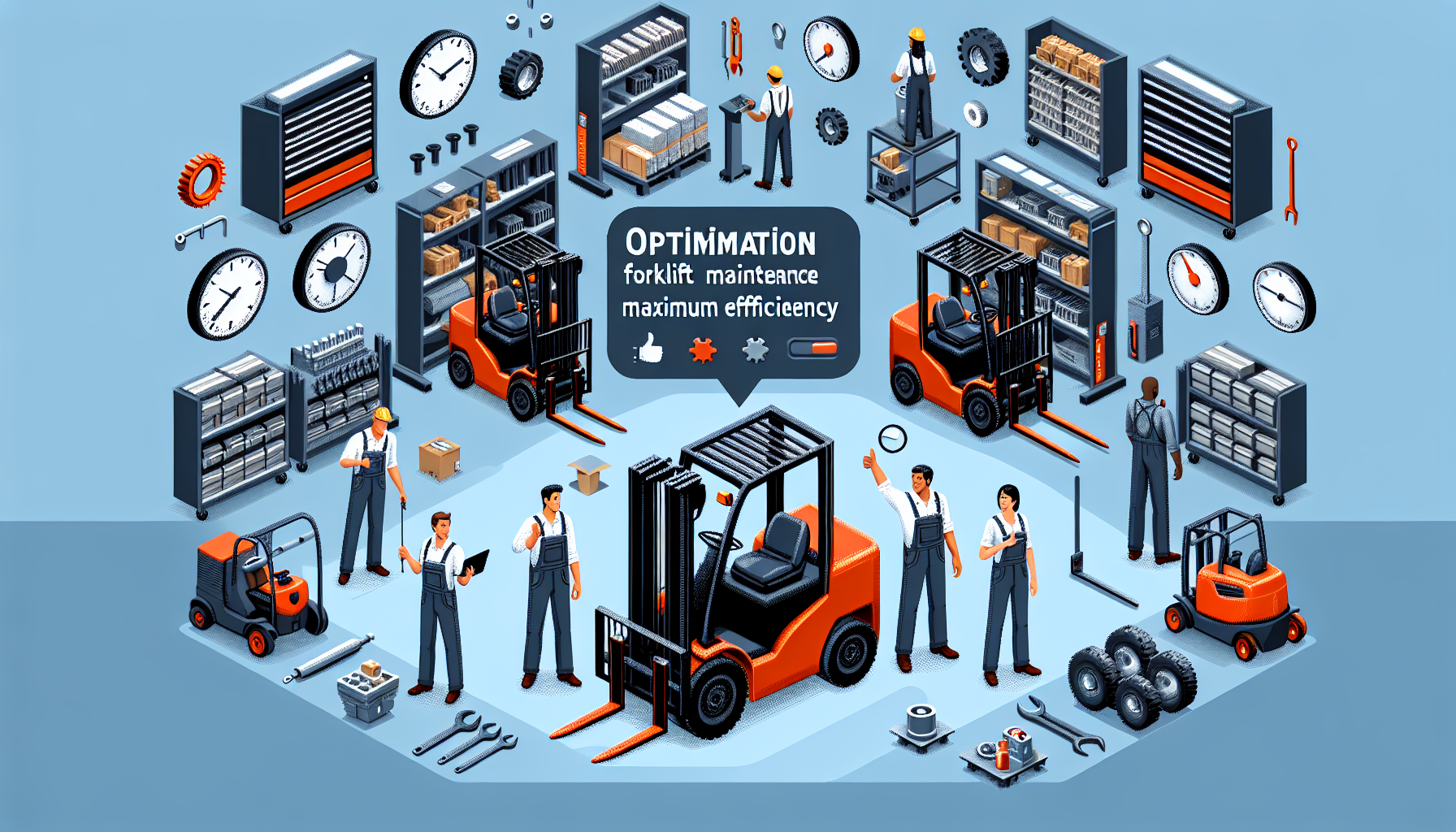Forklifts are an essential part of warehouse operations, helping to transport and store goods efficiently. However, like any other machinery, forklifts require regular maintenance to ensure they are operating at maximum efficiency. By optimizing forklift maintenance practices, warehouse owners and operators can improve productivity, reduce downtime, and extend the lifespan of their equipment. In this article, we will explore effective strategies to optimize forklift maintenance for maximum efficiency.
Implement a Preventive Maintenance Program
One of the most effective ways to optimize forklift maintenance is by implementing a preventive maintenance program. This proactive approach includes regular inspections, servicing, and repairs to identify and address potential issues before they turn into major problems. A preventive maintenance program should include:
- Scheduled inspections: Conduct regular inspections of the forklifts to identify any signs of wear and tear, leaks, or other potential issues.
- Fluid and filter checks: Regularly check and replace fluids and filters, including oil, coolant, and hydraulic fluids, to ensure the forklift operates smoothly.
- Lubrication: Apply lubrication to moving parts to reduce friction and prevent premature wear and tear.
- Battery maintenance: Check the battery’s water levels, clean the terminals, and ensure proper charging to prolong battery life.
- Tire maintenance: Inspect tires for any signs of damage or wear, and replace them as needed to ensure optimal performance and safety.
By implementing a preventive maintenance program, you can identify and address minor issues before they escalate, reducing the risk of unexpected breakdowns and costly repairs.
Train Your Forklift Operators
Another crucial aspect of optimizing forklift maintenance is providing adequate training to your forklift operators. Well-trained operators are more likely to use the equipment correctly and follow safe operating practices, which can significantly reduce the chances of accidents and unnecessary wear and tear. Proper training should cover the following areas:
- Basic forklift operation: Ensure your operators are familiar with the operation of the specific forklift model they will be using.
- Safety procedures: Train operators on safe practices, including load capacity limitations, proper stacking and unstacking techniques, and how to maneuver in different warehouse environments.
- Maintenance awareness: Educate your operators on how to identify signs of potential issues, such as unusual noises, leaks, or abnormal performance, so they can report them promptly.
Regularly reinforce these training sessions to ensure that operators are following best practices and staying up to date with any changes in forklift technology or regulations. Well-trained operators can help identify maintenance requirements earlier, leading to more efficient and timely repairs.
Partner with a Reliable Forklift Maintenance Provider
While preventive maintenance programs and operator training can significantly improve forklift maintenance, it can be beneficial to partner with a reliable forklift maintenance provider like HCO Innovations. These professionals have the expertise and experience in servicing and repairing forklifts, ensuring they run optimally and minimizing any disruptions to your warehouse operations.
HCO Innovations offers turnkey forklift maintenance solutions that cover everything from routine inspections and repairs to emergency breakdown assistance. By outsourcing your forklift maintenance needs to a trusted provider, you can take advantage of their specialized knowledge and resources, saving time and ensuring that your forklifts are always in top condition.
When choosing a maintenance provider, look for one that offers:
- Proactive maintenance: A provider that focuses on preventive maintenance to identify and address potential issues before they affect your operations.
- Rapid response times: Ensure that the provider can respond promptly to any maintenance or repair requests to minimize downtime.
- Expert technicians: Look for technicians who are certified and trained to handle a wide range of forklift brands and models.
By partnering with a reliable maintenance provider, you can optimize your forklift maintenance and benefit from their expertise, ultimately improving the efficiency of your warehouse operations.
In conclusion, optimizing forklift maintenance is crucial for maximizing efficiency and productivity in warehouse operations. By implementing a preventive maintenance program, training your operators, and partnering with a reliable maintenance provider like HCO Innovations, you can ensure that your forklifts are always operating at their best. This proactive approach will help reduce downtime, extend the lifespan of your equipment, and improve overall warehouse efficiency.

